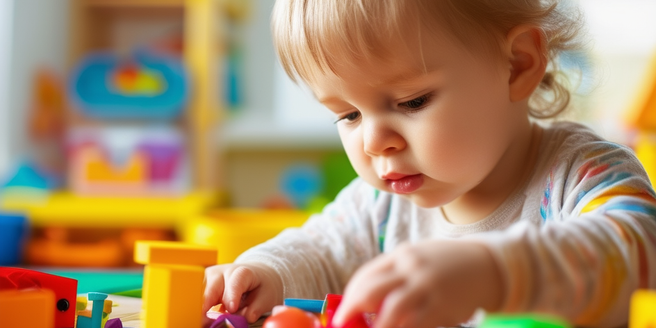
Importance of Educational Toys in Early Childhood Development
Educational toys play a crucial role in early childhood development. They engage children in critical thinking, problem-solving, and fine motor skills activities. By incorporating toys that involve sorting, building, and matching, parents can help toddlers develop cognitive and physical abilities. These toys also promote language and social skills as children interact with peers and caregivers. Additionally, they encourage imaginative play and creativity, which are essential for a child’s overall growth. Furthermore, educational toys can help children develop patience and perseverance as they work through challenges. Early exposure to educational toys lays a foundation for lifelong learning and curiosity, fostering a love for discovery and exploration.
Key Features to Look for in Toddler Educational Toys
When selecting educational toys for toddlers, it is essential to consider several key features. Firstly, the toys should be safe and made from non-toxic materials. Additionally, it’s important to ensure that the toys are durable and easy to clean. Secondly, they should be age-appropriate and designed to match the developmental stage of the child. Look for toys that encourage creativity, such as building blocks or art supplies. Toys that promote physical activity, like push-and-pull toys, are also beneficial. Toys that foster social interaction can help toddlers develop important interpersonal skills. Lastly, interactive toys that offer sensory experiences can significantly enhance learning and development.
Top Types of Educational Toys for Toddlers
There are several top types of educational toys that are highly effective for toddlers. Building blocks and construction sets encourage spatial awareness and fine motor skills. Puzzles and shape sorters help with problem-solving and cognitive development. Incorporating these toys into daily playtime can make learning both fun and engaging. Musical instruments and sound-making toys promote auditory skills and sensory development. Books with interactive elements, such as lift-the-flap or touch-and-feel books, foster early literacy and language skills. Additionally, role-playing toys can enhance social skills and creativity. These toys create a stimulating environment that supports overall growth and learning.
DIY Educational Toys: Simple Ideas for Parents
Creating DIY educational toys at home can be a fun and cost-effective way to engage toddlers in learning. Simple ideas include making sensory bottles filled with colorful objects or creating texture boards with various materials for tactile exploration. Parents can also use household items like measuring cups for sorting games or cardboard boxes for imaginative play. Additionally, crafting with recycled materials can instill an early awareness of sustainability in children. Homemade playdough and finger painting activities encourage creativity and fine motor skills. DIY toys provide endless opportunities for learning and bonding time with children.
How to Choose Age-Appropriate Educational Toys
Choosing age-appropriate educational toys is vital for maximizing their benefits. For infants, look for toys that stimulate sensory experiences, such as soft toys and rattles. As children grow into toddlers, introduce toys that promote fine motor skills, like shape sorters and stacking rings. At this stage, toys that encourage exploration and curiosity are also excellent choices. Incorporate a variety of textures and colors to keep them intrigued. Preschool-aged children benefit from more complex toys, such as puzzles and building sets that encourage problem-solving and creativity. Always consider the child’s developmental milestones and interests to ensure the toys are both engaging and beneficial.
Benefits of Interactive and Sensory Play Activities
Interactive and sensory play activities offer numerous benefits for toddlers. They enhance cognitive development by encouraging exploration and problem-solving. Sensory play, involving textures, sounds, and scents, stimulates multiple senses, aiding in sensory processing and integration. These activities also support social and emotional development as children learn to share and communicate during play. Furthermore, they provide a fun and engaging way for children to interact with their peers. Additionally, interactive play helps develop fine and gross motor skills, fostering physical growth and coordination. Such engaging activities can also foster creativity and imagination in young minds. Overall, these activities create a rich learning environment.
